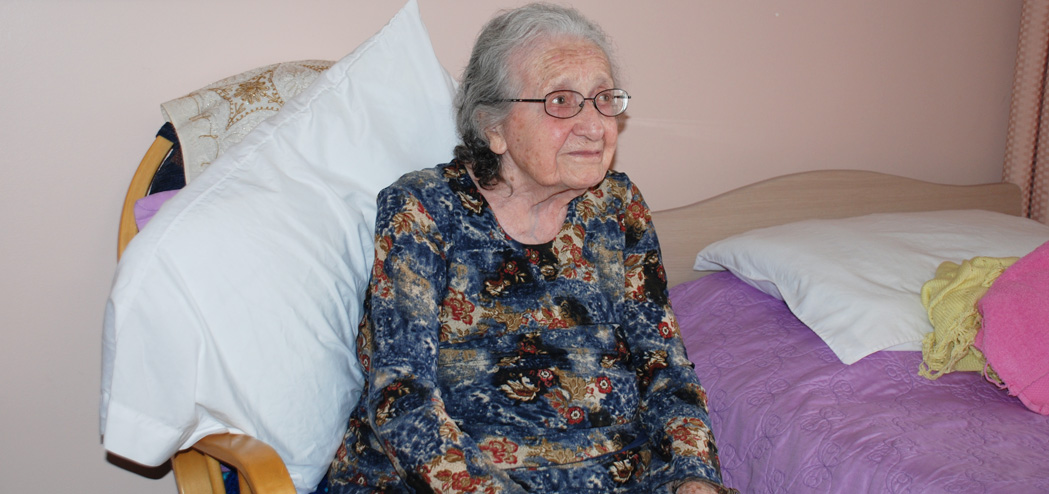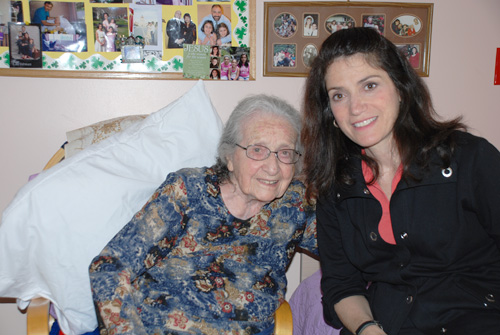Yevnigue Salibian, 100 Year Old Armenian Genocide Survivor, Records Testimony for Armenian Genocide Collection

 Yevnigue Salibian, left, and Carla Garapedian
Yevnigue Salibian, left, and Carla GarapedianBut the past remain vivid, and even now, 100-year-old Yevnigue Salibian has to hold back the tears as she talks about them.
“The memory doesn’t go,” she said. “At night, I cannot sleep. They keep me up at night.”
Salibian is one of the few remaining survivors of the Armenian Genocide, and one of last to provide testimony of that event for the USC Shoah Foundation. She was just a baby when the atrocity began, but has clear recollections of events that lasted into the early 1920s.
Now living in a home for elderly Armenians in Los Angeles, Salibian needs a wheelchair to get around. But aside from some trouble hearing, she appears in good health. She quickly breaks into song and inquisitively peppers visitors with questions about their own lives.
On a warm Saturday in April, she was interviewed by Carla Garapedian of the Armenian Film Foundation, whose collection of nearly 400 interviews of Armenian survivors and witnesses are being incorporated into USC Shoah Foundation’s Visual History Archive. A number of them will be available in the VHA in time for the 100th anniversary of the genocide in 2015.
“The good news about Mrs. Salibian is she’s very lucid and she wants to talk,” Garapedian said. “Sometimes you find (survivors) and they don’t want to talk. Also, her memory is very clear.”
Yevnigue Salibian was born Jan. 14, 1914, one of five children in a middle-class family in the town of Aintab. Her family was able to stay in their home, but eventually had to flee. She was among the last Christians to leave Aintab. It was during this trip that she received her scar when she became trapped in a horse’s reins and nearly bled to death. The scar it left is a lifelong reminder of what she had to endure.
Deeply religious, she learned to speak English by comparing versions of the Bible. After fleeing their home, she lived in Lebanon until 1976, when she came to the United States.
She laughs easily, but still grieves the loss of a son who died 50 years ago. She remains confused about why anybody would want to harm her people. And she’s angry that the Turkish government still hasn’t recognized the atrocity.
“The Turks will deny, deny, deny,” she said. “But they were hungry for the blood of Armenians.”
USC Shoah Foundation Executive Director Stephen D. Smith said it is profoundly important to preserve the voices of people like Salibian.
“She is one of the few remaining witnesses to some of the first genocide of the 20th Century,” Smith said. “By graciously allowing herself to be questioned about this difficult time in her life, she is helping ensure that her story will never be forgotten.”
Salibian understands how she has a special role in the long history of the Armenian people. And she’s proud to do her part to help prevent others from suffering like she did.
“I didn’t see everything,” she said. “But I know my story.”
Like this article? Get our e-newsletter.
Be the first to learn about new articles and personal stories like the one you've just read.